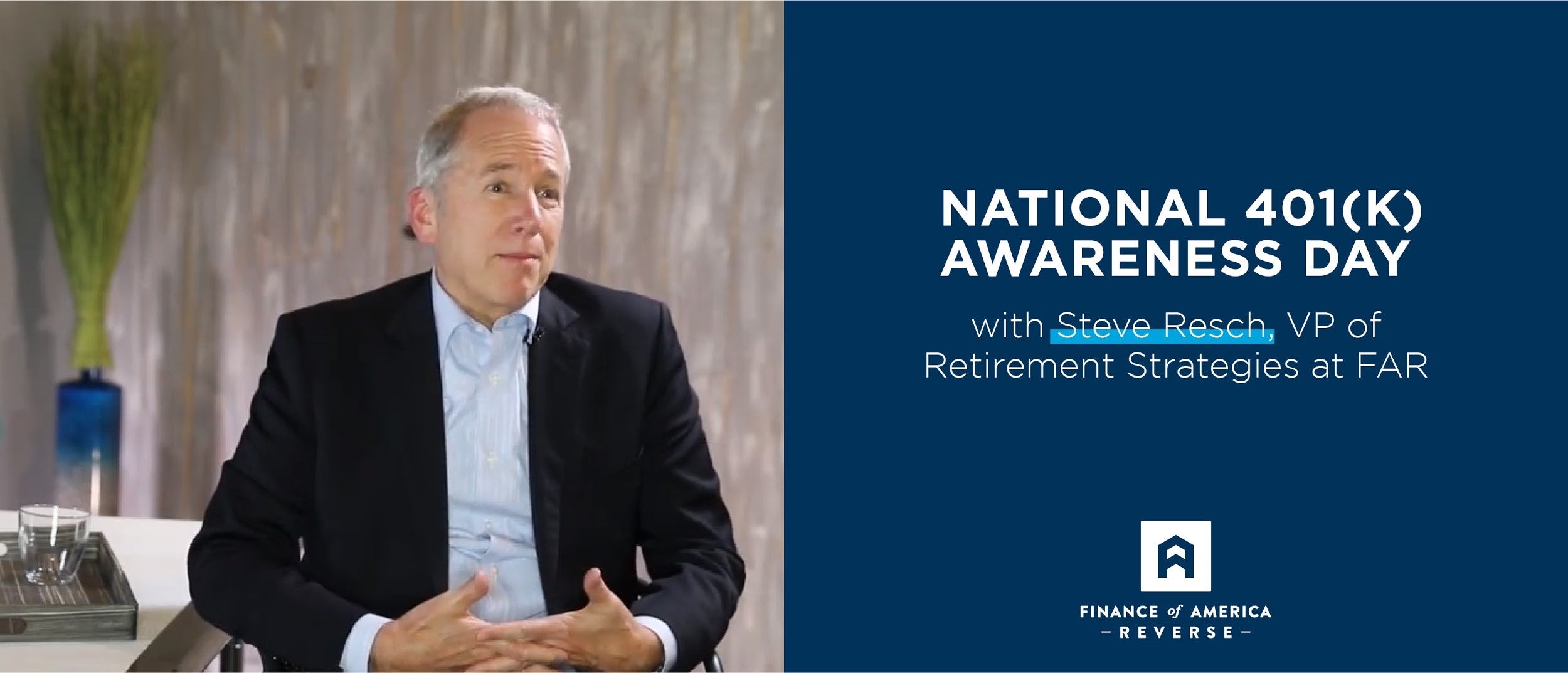By Steve Resch
A new consideration for paying taxes incurred with a Roth Conversion could be the use of home equity with a reverse mortgage. This provides the liquidity that might not otherwise be available to reallocate a portion of your net worth into an income tax-free status, creating tax and cash flow flexibility and potentially a higher net worth over time.
Roth Conversions
A Roth Conversion is a retirement account that is funded with assets from a Traditional or Rollover IRA, 401-K, SEP or Simple IRA. Unlike contributions to a regular Roth which are constrained by income limitations and annual contribution caps, there are no restrictions when converting retirement assets to a Roth. Any amount can be converted regardless of your age, income, or employment status.
The benefits of a Roth Conversion include tax-free compounding of investment returns, and the flexibility to take retirement withdrawals when you want and in whatever amount you want. This is unlike other retirement accounts that have Required Minimum Distributions (RMDs) beginning at age 72. The RMDs are taxable income which means they can impact your Medicare premium bracket, and the taxation of your Social Security benefit, whereas distributions from the Roth will not.
The Roth is also a great estate planning tool since the Secure Act of 2020 eliminated the stretch provisions for inherited retirement plans. Non-spousal heirs no longer can take distributions over their life expectancy, but rather all distributions must be taken within 10 years. While this is true as well for the inherited Roth, the distribution would not be a taxable event.
Considerations:
You will have to pay current income taxes on any amounts that you convert to a Roth. You are paying taxes up front in exchange for future tax-free growth and distributions. A substantial conversion in any one year could therefore have the net effect of boosting taxable income by multiple brackets. To help manage that liability, a series of partial conversions over several years could be planned to keep the distributions within a targeted tax bracket.
The time horizon for which future Roth distributions may be needed also has to be considered. In general, for income tax free distributions on earnings, the Roth must meet a 5-year seasoning requirement, and the recipient needs to be at least age 59 1/2. There are no restrictions on withdrawing your contributions.
Paying for the Roth Conversion:
Conventional wisdom is to pay the resulting tax bills with assets from outside the retirement plan. Using plan assets would defeat the whole purpose of the conversion as you will permanently give up a portion of your capital that is accumulating on a tax-free basis. In addition, if you are under age 59 ½, the portion of plan assets used to pay for the conversion could also be subject to a 10% tax penalty.
For homeowners age 62 or older, a reverse mortgage line of credit could be the funding source to pay the tax liabilities incurred with the Conversion. The available line of credit grows and compounds at a value that is tied to current interest rates. This can be particularly beneficial with a series of partial conversions as it provides a growing resource to pay the future tax bills.
The line of credit also provides flexibility to convert a greater portion of your retirement assets to a Roth during market plunges. You would only pay taxes on the lower present value at the time of conversion and not on any gains in the Roth when the markets recover.
Since there are no principal or interest payments required for as long as you live in your home, the line of credit provides the liquidity to pay for the Roth Conversion with no impact on household cash flow, or the need to sell other invested assets.
When is this a good solution?
The use of a reverse mortgage with a Roth Conversion can be a strategic move if your home equity is less than or equal to your retirement assets (a good rule of thumb). Leveraging it in this case could not only provide retirement income flexibility, but also the potential for a greater estate value. However, if the home represents a major portion of your net worth, it may not make sense to use the reverse for a Roth Conversion. The reverse could better serve as a tax-free source of supplemental income, or to pay for in-home care, or other retirement expenses that distributions from the smaller invested assets may not be able to cover.
Evaluating the use of a reverse mortgage will also depend on the projected costs in comparison with the projected returns of the strategy. If interest rates on a reverse line of credit are at 3%, and your home appreciates at a 3% rate, you could borrow 50% of your home equity and still maintain a 50% retained equity position throughout the duration of the loan. Even if the home only appreciated at a 1% rate, you would still have a retained equity position.
Projected returns on the Roth Conversion would also need to be evaluated. For simplicity’s sake, let us assume you borrow a total of $250,000 from your reverse line of credit to pay the tax bills on $1,000,000 conversion. If you accrue interest on the line of credit balance at a 3% rate but are growing the Roth long term at a 6% tax-free rate, then the spread could be compelling.
Of course, there are no guarantees on any projections which is why you should consult with a Financial Advisor and CPA before implementing this strategy. A number of “what if” scenarios should be evaluated including changes in interest and tax rates, home and investment growth rates, and legacy desires, to determine if using a reverse mortgage for a Roth Conversion could be a strategy that makes sense for you.
Steve Resch, Vice President of Retirement Strategies, will host a special live webinar on December 8 to delve deeper into multiple scenarios that helped draw these clear conclusions. You don’t want to miss out on this comprehensive review of this strategy.
You can sign up for this webinar, as well as a separate one covering multiple applications, at the following link: https://info.fareverse.com/rothconversion
This article is intended for general informational and educational purposes only, and should not be construed as financial or tax advice. For more information about whether a reverse mortgage may be right for you, you should consult an independent financial advisor. For tax advice, please consult a tax professional.















I WANT TO KEEP UP TO DATE ON RETIREMENT TRENDS
Follow Us.